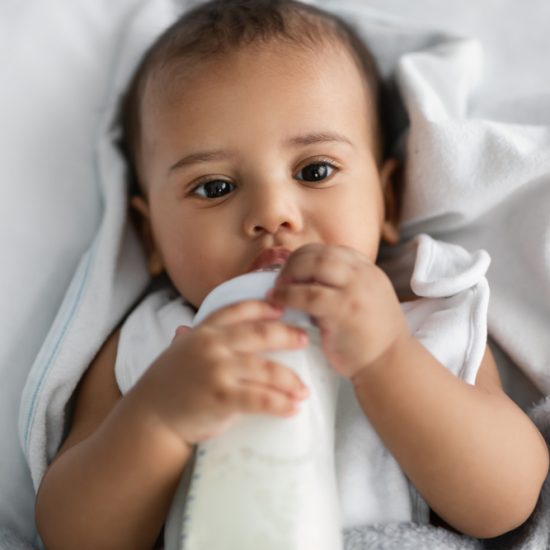Not all mothers are able to breastfeed, and the formula shortage puts their kids at risk.
Milk N Mamas Baby has a history rooted in activism on behalf of nursing moms, and we’re avid proponents of breastfeeding when it’s possible. Breast milk is the healthiest food source available to infants; however, not all moms are able to breastfeed. A recent New York Times article spoke with moms whose breastfeeding plans were disrupted by difficult deliveries, illness, and other unavoidable challenges. The most vulnerable moms, those living at or below the poverty level, are often most reliant on formula due to demanding work schedules and environments that don’t support pumping on the job.
For moms who are dependent on formula to feed their newborns, the ongoing baby formula shortage caused by recalls and supply chain issues has become a nightmare. However, some nursing moms are stepping up to help fill the need by donating breastmilk to human milk banks or providing breastmilk directly to nonlactating mothers in their area via milk share programs.
What is a human milk bank?
Milk banks collect breast milk from mothers who produce more than their babies need. Banks screen, pasteurize, and test the milk to ensure it is safe for consumption, and then dispense it to nonlactating mothers. Many of the recipients of breast milk from human milk banks are preemies or medically fragile. For that reason, Lindsay Groff, Director of the Human Milk Banking Association of North America, told WFTV of Orlando, Florida, “If people can donate, now would be the time, because when we have more of an inventory we can look beyond the medically fragile.”
What is a milk sharing program?
Programs like Eats on Feets and Human Milk 4 Human Babies offer parents around the world a network for sharing breastmilk. These commerce-free spaces connect parents who can offer breastmilk with parents in need of breastmilk. While breastmilk banks are regulated and more regularly used by hospitals, milk sharing programs are peer-to-peer donations, and parents must rely on their own good judgment regarding donors.
Search “Eats on Feets” or “Human Milk 4 Human Babies” on Facebook to find a program near you and to learn about each network’s guidelines.
Want to pump breastmilk to help nonlactating moms?
If you’re a lactating woman, and you have a pump, you can donate breastmilk to your local human milk bank or provide milk directly to mothers in your community who may be unable to breastfeed. If you’ve got insurance, we’ve got pumps that are 100% covered by Tricare and most other provider health plans, including:
- Our most popular wearable pump the Elvie Stride,
- Our most asked for brand Spectra, and
- The completely wireless top performer BabyBuddha.
Give us a call to learn more.
